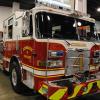Sign in to follow this
Followers
0

Chevrons: Saferty or Marketing?
Started by
firedude,
-
Recently Browsing 0 members
No registered users viewing this page.

Started by
firedude,
No registered users viewing this page.